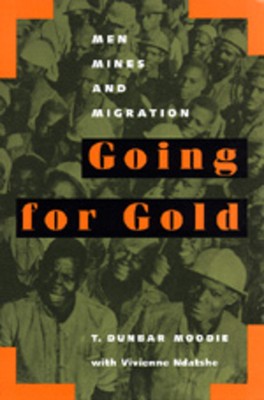
- We will send in 10–14 business days.
- Author: T Dunbar Moodie
- Publisher: University of California Press
- ISBN-10: 0520086449
- ISBN-13: 9780520086449
- Format: 15.2 x 22.7 x 2 cm, softcover
- Language: English
- SAVE -10% with code: EXTRA
Reviews
Description
This book tells the story of the lives of migrant black African men who work on the South African gold mines, told from their own point of view and, as much as possible, in their own words. Dunbar Moodie examines the operation of local power structures and resistances, changes in production techniques, the limits and successes of unionization, and the nature of ethnic conflicts at different periods and on different terrains of struggle. He treats his subject thematically and historically, examining how notions of integrity, manhood, sexuality, work, power, solidarity, and violence have all changed over time, especially with the shift to a proletarianized work force on the mines in the 1970s. Moodie integrates analyses of individual life-strategies with theories of social change, illuminating the ways in which these play off each other in historically significant ways. He shows how human beings (in this case, African men) build integrity and construct their own social order, even in situations of apparent total repression.
EXTRA 10 % discount with code: EXTRA
The promotion ends in 18d.08:38:30
The discount code is valid when purchasing from 10 €. Discounts do not stack.
- Author: T Dunbar Moodie
- Publisher: University of California Press
- ISBN-10: 0520086449
- ISBN-13: 9780520086449
- Format: 15.2 x 22.7 x 2 cm, softcover
- Language: English English
This book tells the story of the lives of migrant black African men who work on the South African gold mines, told from their own point of view and, as much as possible, in their own words. Dunbar Moodie examines the operation of local power structures and resistances, changes in production techniques, the limits and successes of unionization, and the nature of ethnic conflicts at different periods and on different terrains of struggle. He treats his subject thematically and historically, examining how notions of integrity, manhood, sexuality, work, power, solidarity, and violence have all changed over time, especially with the shift to a proletarianized work force on the mines in the 1970s. Moodie integrates analyses of individual life-strategies with theories of social change, illuminating the ways in which these play off each other in historically significant ways. He shows how human beings (in this case, African men) build integrity and construct their own social order, even in situations of apparent total repression.


Reviews